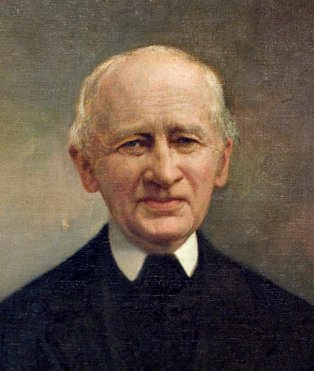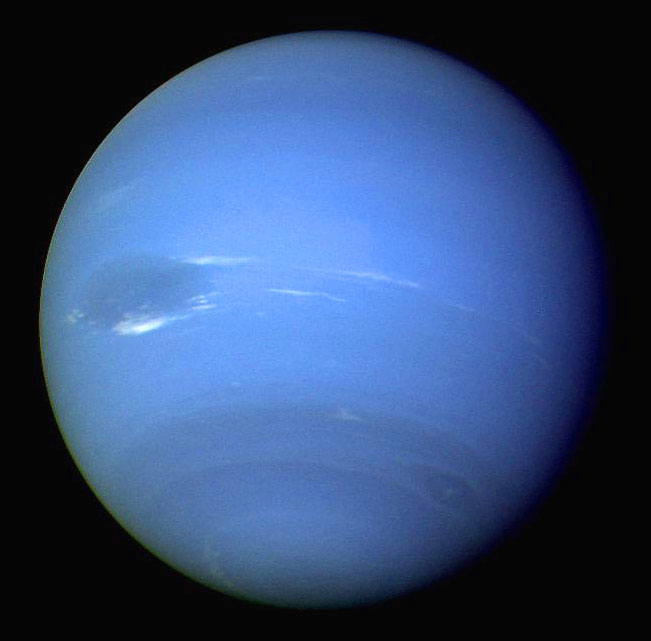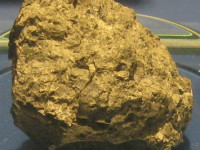
Johann Gottfried Galle (1812 – 1910)
On June 9, 1812, German astronomer Johann Gottfried Galle was born. Galle actually was the first person to view the planet Neptune and know what he was looking at, by making use of the calculations of his fellow astronomer Urbain Le Verrier.
Background Johann Gottfried Galle
Johann Gottfried Galle studied at the Friedrich-Wilhelms-Universität Berlin between 1839 and 1833 and started to work at the new Berlin Observatory two years later. There, he worked for 16 years and made several discoveries at the observatory. Galle made use especially of a Fraunhofer-refractor with 22,5 cm aperture. In 1838 he discovered an inner, dark ring of Saturn. From 2 December 1839 to 6 March 1840 he discovered three new comets. He completed his doctoral thesis on Ole Rømer’s observation of meridian transits of stars and planets on the days from 20 October to 23 October 1706 through critically discussing his findings. His dissertation was also sent to Urbain Le Verrier, who took one year to answer. In his returning letter, Le Verrier explained that he had been investigating the perturbations of the orbit of the planet Uranus and from this he derived the position of a still undiscovered planet. He was not alone with his observation, since also French astronomer Alexis Bouvard noticed changes in the orbit of Uranus which led him to deduce that its orbit was subject to gravitational perturbation by an unknown planet. Le Verrier asked Galle to search in the corresponding section of the sky and in collaboration with his assistant Heinrich Louis d’Arrest.
The Discovery of Neptune
On September 23, 1846, Galle discovered a star of 8th magnitude, only 1° away from the calculated position, which was not recorded in the Berliner Akademischen Sternkarte. Over the following two evenings, the object could be determined as a planet through the measurement of its motion. Galle always refused to be acknowledged as the discoverer of Neptune and attributed the discovery to Le Verrier.

Neptune from Voyager 2 in 1989, (© NASA)
Naming Neptune
After Neptune’s discovery, the planet was referred to as “the planet exterior to Uranus” or as “Le Verrier’s planet“. In England, Cambridge Observatory director James Challis put forward the name Oceanus. Galle then suggested the name ‘Janus‘, but later on, Le Verrier claimed his right to name his discovered planet Neptune. After further quarrels, the name became widely accepted in the international scientific community. In Roman mythology, Neptune was the god of the sea, identified with the Greek Poseidon. The demand for a mythological name seemed to be in keeping with the nomenclature of the other planets, all of which, except for Earth, were named for deities in Greek and Roman mythology.
From its discovery in 1846 until the subsequent discovery of Pluto in 1930, Neptune was the farthest known planet. Upon Pluto’s discovery Neptune became the penultimate planet. However, in 2006, the International Astronomical Union defined the word “planet” for the first time, reclassifying Pluto as a “dwarf planet” and making Neptune once again the last planet in the Solar System.
Johann Gottfried Galle – Later Years
In 1847, Galle was chosen by Encke to succeed Friedrich Wilhelm Bessel as director of the Königsberg observatory. Before the appointment, which had already been decreed by Friedrich Wilhelm IV, could take effect, Galle resigned from the application at the beginning of 1848 following an intrigue led against him by Carl Gustav Jacob Jacobi.
In 1851, Galle went to Breslau, where he first became director of the observatory there and, from 1856, professor of astronomy at the Silesian Friedrich Wilhelm University in Breslau. There he was active for more than 45 years. For the academic year 1875/76 he was elected rector. During this time he dealt with the exact orbit determination of planets and developed methods for the determination of the altitude of the aurora as well as the orbit of meteors and summarized the data of all comets observed until 1894 in one work. In addition, he dealt with the magnetism of the Earth and climatology. In total, he published over 200 works. In 1897 Galle moved to Potsdam, where he died at the age of 98 on July 10, 1910.
Mark Showalter, Seth Shostak, The Moons of Neptune, [9]
References and Further Reading:
- [1] Neptune at NASA
- [2] Johann Gottfried Galle und die Entdeckung des Neptun [in German]
- [3] Johann Gottfried Galle by C. A. Chant at Harvard
- [4] Urbain Le Verrier and the Hypothetical Planet Vulcan
- [5] James Challis and his failure to discover the planet Neptune, SciHi Blog
- [6] John Couch Adams and the Discovery of Planet Neptune, SciHi Blog
- [7] Neptune, Oceanos, or ‘Le Verrier’ – How to name a new planet?, SciHi Blog
- [8] Johann Gottfried Galle at Wikidata
- [9] Mark Showalter, Seth Shostak, The Moons of Neptune, SETI Institute @ youtube
- [10] Franz, J. (1910). “Anzeige des Todes von Johann Gottfried Galle”. Astronomische Nachrichten. 185 (19): 309.
- [11] “Obituary Notices : Associates : Galle, Johann Gottfried”. Monthly Notices of the Royal Astronomical Society. 71: 275. 1911.
- [12] Timeline of Discoveries in the Solar System, via Wikidata





